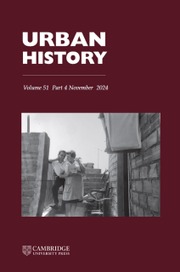Over the last 20 years, our understanding of the experiences of the middling and poorer sorts of women in early modern England has been greatly enriched through the outpouring of scholarship on ecclesiastical court records. London has provided the focal point of this scholarship, with Laura Gowing's Domestic Dangers laying the foundations of a growing historiography that considers the ways in which metropolitan women established honour and reputation. Using the London church court depositions alongside other legal sources (Bridewell hospital and Old Bailey court records), play texts and cheap print (from broadside ballads and jest books to conduct manuals), Tim Reinke-Williams’ Women, Work and Sociability in Early Modern London uses an intertextual approach to offer a fresh interpretation of female reputation and honour. Contributing to recent scholarship by Alexandra Shepard, Craig Muldrew and Garthine Walker that emphasises how sexual behaviour was just one way in which women's honesty and integrity was judged and understood, this book focuses on providing a holistic study of ‘early modern women of good repute’ and seeks to demonstrate how female reputation was defined through patterns of work and sociability, two neglected aspects of women's lives (p. 6).
The book is divided into five chapters that focus on the ways in which women from the middling levels of society to the labouring poor negotiated and navigated respectability within their economic and social worlds. Chapter 1 discusses the impact of motherhood upon reputation, considering the ways in which positive self-identities might be constructed through carrying a child to term and supporting it through its infancy into adolescence and adulthood. In particular, the chapter sheds new light on the nature of early modern childcare in urban society, as Reinke-Williams suggests that women who were employed in childcare were navigating an economy of makeshifts, whilst children also helped their working mothers to navigate this shift economy by running errands on their behalf. The second chapter focuses on housewifery, considering it as a form of ‘unpaid yet essential labour’, undertaken by women across different stages of the lifecycle, from married women to young girls (pp. 44–5). The chapter begins by discussing the latter, considering the importance of financial resources in marrying well and setting up a household. Once married, reputation and credit might then be established through good housewifery and efficient economy; Reinke-Williams suggests that women were praised for their effective management of household accounts and budgets, and the ability to maintain a clean, well-furnished and decorated house was key to earning a good reputation. Within this chapter, varying gradations of wealth are fully investigated. Reinke-Williams shows that through their work as charmaids and laundresses, the labouring poor could establish themselves as honest, reputable individuals, whilst those from all levels of society sought praise for their ability to decorate their homes tastefully, whatever their budget. Chapter 3 explores domestic management, focusing particularly on the nature of the relationships that mistresses forged with their servants. Reinke-Williams argues that support was more frequently offered to maidservants than previous scholarship has suggested, providing examples of mistresses exercising both discipline and compassion. Chapter 4 discusses the ways in which women navigated employment outside of the household economy, focusing specifically on the operation of women as successful and creditworthy retailers within urban society. Reinke-Williams explores how retail was depicted as a reputable form of work for women and stresses the importance of honest labour in perceptions and self-perceptions of female credit. The final chapter explores reputation and honesty through sociability, comprised of three concepts: ‘neighbourliness’, ‘company’ and ‘civility’. This chapter is particularly useful in considering rules of sociability, demonstrating how the appropriateness of company was determined by gender, space, time and behaviour. Reinke-Williams’ exploration of different social situations, from neighbourly interactions in the streets to keeping company and drinking in taverns, shows that the boundaries of acceptable behaviour were negotiated and defined within a range of urban contexts. Reinke-Williams notes how ‘concepts of company overlapped with and were defined by the rules of civility’ (p. 156).
The real strength of this book is in the truly holistic nature of the study; a lot of ground is covered as Reinke-Williams takes women outside of the urban household, considering their activities and interactions within the wider community in terms of work and sociability. Reinke-Williams is careful not to treat women as a homogeneous group; instead, he draws distinctions between the various levels of wealth and status that the women of his study possessed, as well as considering the changing boundaries and perceptions of women's reputation over the course of the lifecycle. An avenue for further research must surely lie in quantitative investigation of the evidence to assess the extent to which each of Reinke-Williams’ ‘criteria’ (motherhood, housewifery, household management, retailing and sociability) accounted for and defined female honour and reputation. This is suggested simply to build upon Reinke-Williams’ work rather than to detract from the value of this book as a comprehensive, thought-provoking and inspiring investigation of how middling and labouring poor women constructed positive reputations through their hard work, neighbourliness and civility within urban society.


